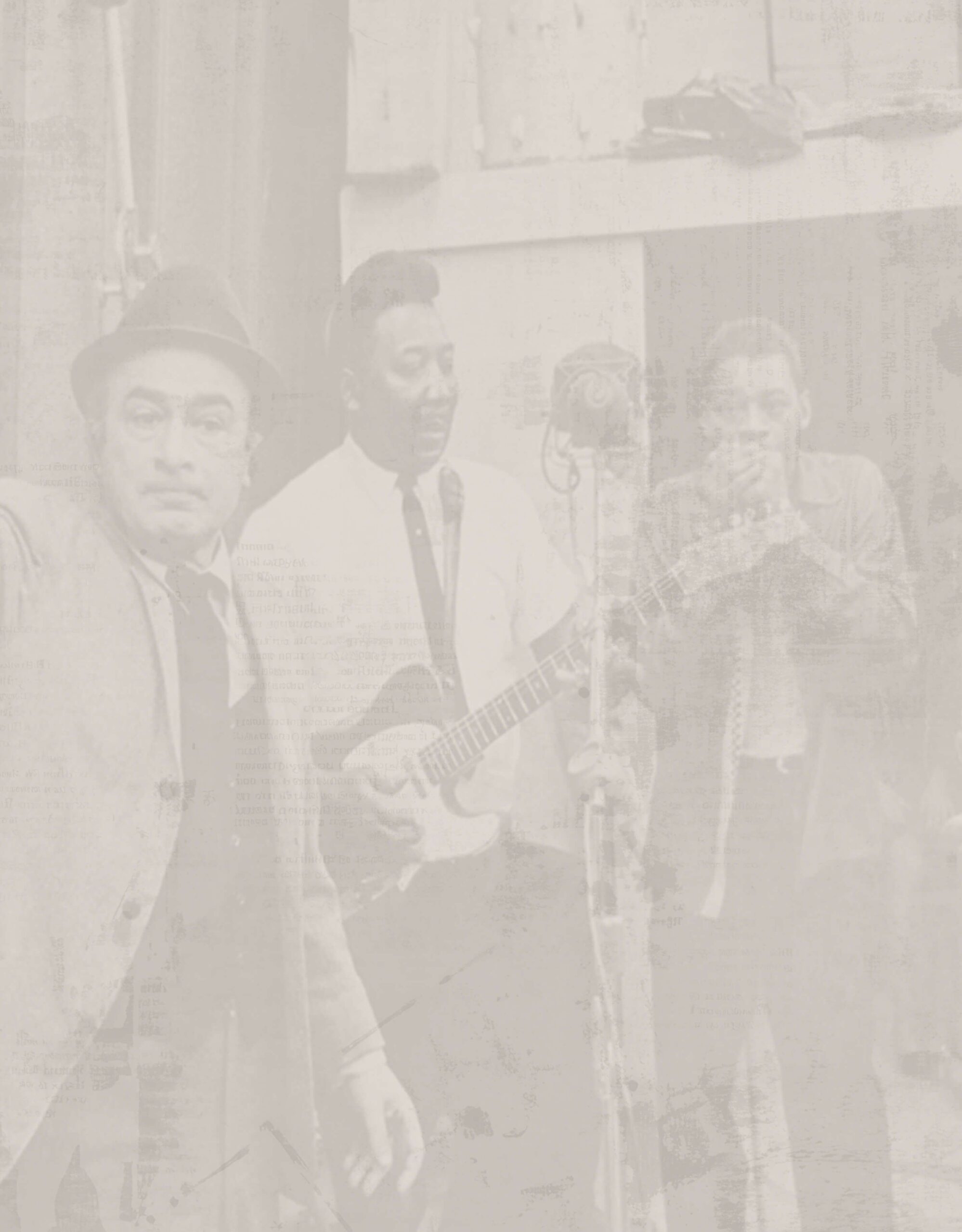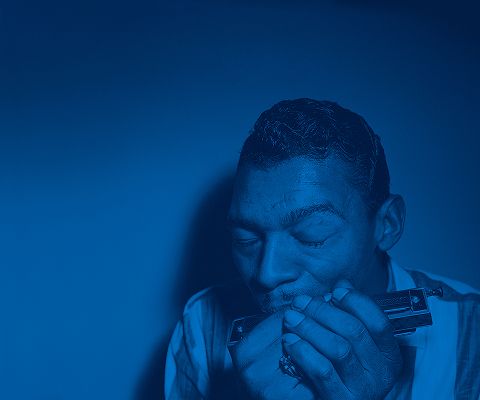Little Milton
Little Milton
“He had a certain gentleness united with inner strength within him that kept his audiences completely mesmerized by his performance.” - Fontella Bass
Compared to labelmates like Muddy Waters and Bo Diddley, Little Milton was a late signee to the Chess family, not joining until the early ‘60s. But he’d already had quite a career as a singer and guitarist in the preceding decade - and his blues-soul style, often compared to that of B.B. King, brought a new wave of commercial success to the label.
James Milton Campbell was born in 1934 in Mississippi, raised on blues music by his father, a farmer who also played music in his spare time. When he was 12, Milton scraped together some money from odd jobs and purchased his first guitar, which he’d perform for money on local street corners and eventually nearby clubs. He’d sit in with anyone who’d have him - future Chess legend Sonny Boy Williamson II had him in his backing band at least once - and his devotion to the craft got people noticing.
One person who found himself attracted to Little Milton’s guitar was Ike Turner, a talent scout for the Memphis label Sun Records. Milton recorded several sides for Sun in 1953 - the same year a Mississippian named Elvis Presley cut his first works for the Memphis label - but found success elusive. But his spirit never broke: moving to East St. Louis, Illinois in 1958, he and a local disc jockey decided to form their own label. Bobbin Records not only released more material by Little Milton, but soon signed blues musicians who’d become very influential over the next decade, including Albert King and Fontella Bass.
Impressed by Bobbin’s work, Chess offered the label a wider distribution deal, and Milton in turn would begin to record for their Checker imprint starting in 1961. “So Mean to Me,” his second single for the label released that same year, became his first chart hit anywhere, reaching No. 14 on the R&B charts. As his sound began to evolve, audiences began to take notice, and in 1965, “We’re Gonna Make It” - a stirring song utilized as a metaphor for the growing civil rights movement in America - not only topped the R&B chart but crossed over into the pop survey, reaching No. 25 on the Billboard Hot 100. More hits followed on Checker through the ‘60s and even into the early ‘70s, including “Who’s Cheating Who?” (1965), “Feel So Bad” (1966), “Grits Ain’t Groceries” (1968), “If Walls Could Talk” (1969) and 1970’s “Baby, I Love You,” made famous several years earlier by Aretha Franklin.
Little Milton would depart Checker not long after Chess was sold, signing to Stax Records for a time and appearing at the label’s historic Wattstax benefit concert in Los Angeles. He remained a living legend of the blues for the next few decades: he was inducted into the Blues Hall of Fame and earned a W.C. Handey Award for Blues Entertainer of the Year in 1988, and was still actively recording when he died in 2005.
Compared to labelmates like Muddy Waters and Bo Diddley, Little Milton was a late signee to the Chess family, not joining until the early ‘60s. But he’d already had quite a career as a singer and guitarist in the preceding decade - and his blues-soul style, often compared to that of B.B. King, brought a new wave of commercial success to the label.
James Milton Campbell was born in 1934 in Mississippi, raised on blues music by his father, a farmer who also played music in his spare time. When he was 12, Milton scraped together some money from odd jobs and purchased his first guitar, which he’d perform for money on local street corners and eventually nearby clubs. He’d sit in with anyone who’d have him - future Chess legend Sonny Boy Williamson II had him in his backing band at least once - and his devotion to the craft got people noticing.
One person who found himself attracted to Little Milton’s guitar was Ike Turner, a talent scout for the Memphis label Sun Records. Milton recorded several sides for Sun in 1953 - the same year a Mississippian named Elvis Presley cut his first works for the Memphis label - but found success elusive. But his spirit never broke: moving to East St. Louis, Illinois in 1958, he and a local disc jockey decided to form their own label. Bobbin Records not only released more material by Little Milton, but soon signed blues musicians who’d become very influential over the next decade, including Albert King and Fontella Bass.
Impressed by Bobbin’s work, Chess offered the label a wider distribution deal, and Milton in turn would begin to record for their Checker imprint starting in 1961. “So Mean to Me,” his second single for the label released that same year, became his first chart hit anywhere, reaching No. 14 on the R&B charts. As his sound began to evolve, audiences began to take notice, and in 1965, “We’re Gonna Make It” - a stirring song utilized as a metaphor for the growing civil rights movement in America - not only topped the R&B chart but crossed over into the pop survey, reaching No. 25 on the Billboard Hot 100. More hits followed on Checker through the ‘60s and even into the early ‘70s, including “Who’s Cheating Who?” (1965), “Feel So Bad” (1966), “Grits Ain’t Groceries” (1968), “If Walls Could Talk” (1969) and 1970’s “Baby, I Love You,” made famous several years earlier by Aretha Franklin.
Little Milton would depart Checker not long after Chess was sold, signing to Stax Records for a time and appearing at the label’s historic Wattstax benefit concert in Los Angeles. He remained a living legend of the blues for the next few decades: he was inducted into the Blues Hall of Fame and earned a W.C. Handey Award for Blues Entertainer of the Year in 1988, and was still actively recording when he died in 2005.


